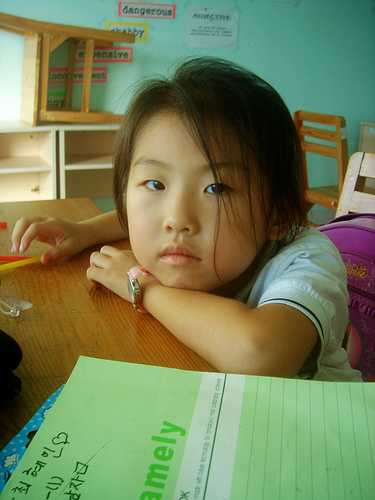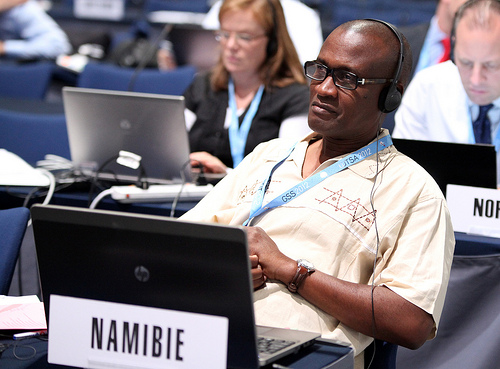Korean Children Unhappy in School Despite High Test Scores
 In the 2012 Program for International Student Assessment (PISA) report, Korea ranked highly in all three subjects of mathematics, reading and science when compared with the other 64 countries evaluated. Despite high academic achievements, Korean students had the lowest degree of happiness of all countries who participated. Less than 60% of Korean students tested agreed that they felt happy when at school.
In the 2012 Program for International Student Assessment (PISA) report, Korea ranked highly in all three subjects of mathematics, reading and science when compared with the other 64 countries evaluated. Despite high academic achievements, Korean students had the lowest degree of happiness of all countries who participated. Less than 60% of Korean students tested agreed that they felt happy when at school.
Part of the reason for this unhappiness could be the pressure placed upon South Korean children to achieve high test scores in order to be competitive. Specifically, students feel immense pressure to score highly on the Korean Scholastic Aptitude Test so that they can gain admission to the best universities. To best prepare students for these exams, oftentimes schools focus on preparing students for tests rather than teaching them basic learning skills.
“In Korea you have to know the right answer to every question, but in the US or Europe, the process of getting to the answer is much more important” stated Sue Kim, an education journalist at Korea’s Chosun Ilbo newspaper.
Pressures to succeed academically are so high that students commonly spend all day and night in classes. A typical student will attend school during the day, get private instruction at night, and then spend several hours studying independently. This leaves children with very little time to rest, recuperate or enjoy themselves.
The majority of South Korean children follow schedules such as this every day of the week in order to get ahead. Following a full day at school, students then attend private “crammers” called hagwon where they receive tutoring for a fee. Approximately three-quarters of all children attend the nearly 100,000 hagwons that exist throughout South Korea.
Yoon-Gyeong Hwang, a mother of a teenage girl explained “Korea has few natural resources, we don’t even have much land, the only resource we have is people. So anyone who wants to be successful really has to stand out. As a mother I don’t feel comfortable about this kind of situation, but it’s the only thing she can do to achieve her dream.”
Not only does this approach to education place an immense burden upon South Korean children, but it also strains the resources of their families. Each year parents spend thousands of pounds to pay for after school instruction.
The endless pressure placed upon Koreans to succeed also made Korea the industrialized OECD country with the highest rate of suicide. For Koreans under the age of 40, suicide is the number one cause of death. In response to this epidemic, the government has been working to find ways to improve conditions.
According to Nam Soo Suh, Education Minister, “Korea has achieved miraculous growth within a short period of time…And naturally, due to that, we focused on and emphasised achievement within schools and in society, so that students and adults were under a lot of stress, and that led to high suicide rates. We still have a long way to go but we are doing some soul-searching in our society, and our goals now are about how to make our people happier.”
Creative Commons Love: Laiwan Ng on Flickr.com
Written by Amanda Lubit









